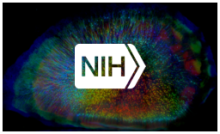
BRAIN Investigators may be interested in the Bridge2AI program and Notices through the NIH Office of Data Science Strategy that will support artificial intelligence and big data efforts.
As the quantity and heterogeneity of datasets exponentially increase in neuroscience and related fields, the BRAIN community may be interested in the following NIH funding opportunities on artificial intelligence (AI) and big data.
The Bridge2AI Program: The goal of the NIH Common Fund’s Bridge to Artificial Intelligence (Bridge2AI) program is to generate flagship datasets and best practices for the collection and preparation of AI/machine learning (ML)-ready data to address biomedical and behavioral research grand challenges. Two Notices of Intent to Publish a Funding Opportunity have been released:
NOT-RM-21-021 NIH Bridge2AI Integration, Dissemination, and Evaluation (BRIDGE) Center (U54 Clinical Trial Not Allowed)
The NIH plans to publish a Notice of Funding Opportunity (NOFO) to solicit applications for Integration, Dissemination, and Evaluation (BRIDGE) Center cores to integrate, disseminate and evaluate datasets and cross-cutting products across Bridge2AI Data Generation Projects (see below), and to develop best-practices for the use of artificial intelligence and machine learning (AI/ML) methods to address key grand challenges in biomedical and behavioral research.
NOT-RM-21-022 Data Generation Projects of the NIH Bridge to Artificial Intelligence (Bridge2AI) Program (OT2)
The NIH plans to publish a Research Opportunity Announcement (ROA) to solicit data generation projects to produce flagship datasets for use in biomedical and behavioral science discoveries driven by applications of artificial intelligence and machine learning (AI/ML). The data generation projects will encompass expertise to incorporate ethical principles, associated standards and tools, and skills and workforce development to address biomedical and behavioral grand challenges.
Both opportunities are expected to be published in June 2021 with the first expected application due dates in August 2021.
Additionally, the NIH Office of Data Science Strategy has released four Notices of Special Interest (NOSI) that may be of interest to BRAIN investigators:
NOT-OD-21-079 Administrative Supplements for Workforce Development at the Interface of Information Sciences, Artificial Intelligence and Machine Learning (AI/ML), and Biomedical Sciences
This NOSI supports the development and implementation of curricular or training activities at the interface of information science, AI/ML, and biomedical sciences to develop the competencies and skills needed to make biomedical data FAIR (Findable, Accessible, Interoperable, and Reusable) and AI/ML-ready. Applications are due May 14, 2021.
NOT-OD-21-091 Administrative Supplements to Support Enhancement of Software Tools for Open Science
This NOSI encourages researchers to engage in new types of collaborations that focus on improving the quality and sustainability of research software from a software engineering perspective. Administrative supplements will support efforts that address robustness, sustainability, reusability, and scalability of existing biomedical research software tools and workflows of recognized scientific value. Applications are due May 15, 2021.
NOT-OD-21-089 Support for existing data repositories to align with FAIR and TRUST principles and evaluate usage, utility, and impact
This NOSI aims to strengthen NIH-funded biomedical data repositories to better enable data discoverability, interoperability, and reuse by aligning with the FAIR and TRUST principles and using metrics to measure their effectiveness. This NOSI provides an opportunity for existing repositories to increase ”FAIR”-ness and “TRUST”-worthiness to improve their usage, utility, and impact throughout the data resource lifecycle. Applications are due May 20, 2021.
NOT-OD-21-094 Administrative Supplements to Support Collaborations to Improve the AI/ML-Readiness of NIH-Supported Data
This NOSI supports collaborations that bring together expertise in biomedicine, data management, and AI/ML to make NIH-supported data useful and applicable for AI/ML analytics. Applications are due June 1, 2021.
As our tools and technologies to record and understand neural data continue to improve, the data we’re collecting about human subjects may become more sensitive. At the same time, there is a push to increase data sharing, so that we can advance science more quickly and maximize the value of patients’ participation in research. Because BRAIN is at the forefront of technology development, this is a topic of ethical interest that continues to come up: how should we balance the benefits and concerns around data sharing, and what can we do to mitigate the concerns?
To that end, Drs. Christine Grady and Saskia Hendriks from the NIH Department of Bioethics are currently running a survey among investigators, to better understand data practices the views of human subject investigators on this topic. Investigators receiving the email invitation to this survey are invited to fill it out and share their insights.
